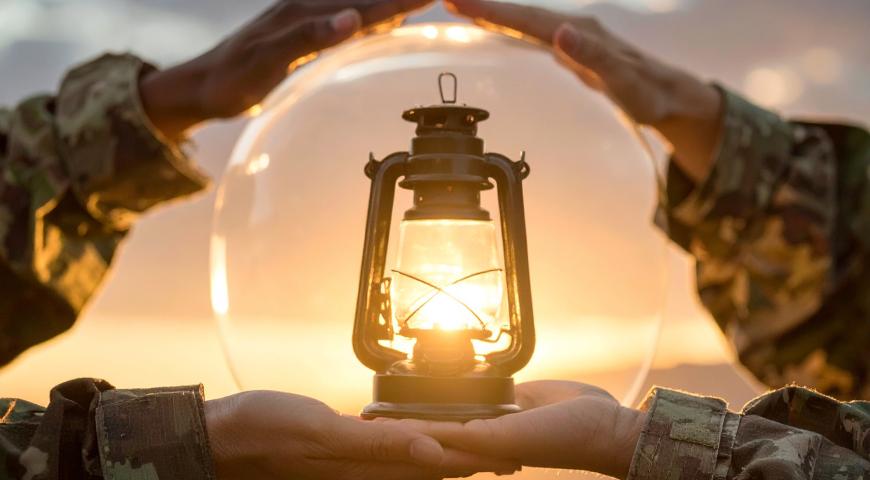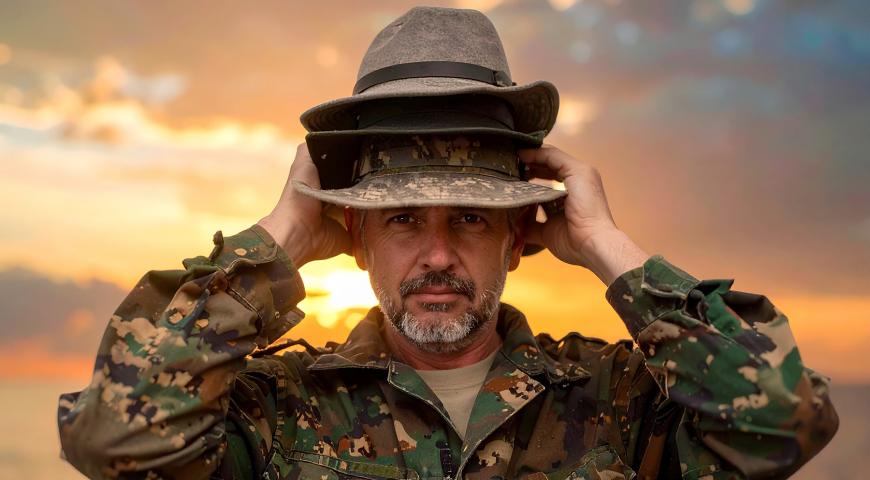#Why I Write
WGCDR Chris McInnes
I find writing difficult and, frequently, not enjoyable. For me, answering the title question typically involves much wailing and gnashing of teeth as I ponder why I keep doing this to myself. But then I will see a new, stronger argument emerge from what I have put down on page or a nice turn of phrase will allow a small glimmer of ‘you can genuinely write’ light into the ‘you’re an impostor, what do you think you’re doing’ darkness.
In many ways, my relationship with writing is much like the relationship I have with golf. Mostly its bloody awful, but the occasional good bits are more than enough to keep me coming back for more.
So why do it? I’m a firm believer in James Boswell’s adage that “good writing is disciplined talking.” I can talk; and I love the back and forth that comes from live presentation. Audience engagement shapes and clarifies ideas and the way they are presented. For me, it is entirely possible to start a presentation knowing roughly half of what I want to say; the rest will emerge as we – the audience and I – progress along our shared journey.
But you cannot do that in writing. When you publish writing, there is no ‘oh yes, but…’ option. The argument must stand alone. That reality forces me to grapple with arguments far more deeply than simply talking about them.
So what arguments matter to me and what motivates me to engage? I am an airman, a history nerd, and a science and technology enthusiast so I am stimulated by the intersection and interplay of those three areas. I will explore the role of each in turn.
I am an airman, by which I mean an airminded member of the profession of arms. I think the advent of aircraft and air power has fundamentally reshaped the character of military operations by creating vertical manoeuvre space. But its impact has been very poorly understood and articulated, either through over-reaching to declare other forms of power irrelevant or timidly assigning air power to supporting others.
Instead, I think exploiting the potential of vertical manoeuvre generates a different way — an airminded way — of conducting military operations that has a distinct place in the tool box. William Slim, an Army officer who was an airman, devised a brilliantly airminded campaign to eject the Japanese from Burma. The Anglo-American defeat of Germany and the American destruction of Japan in the Second World War were airminded campaigns writ large.
These are not claims that air power alone defeated the Japanese in Burma or won the war completely; it did not. But neither did any other form of power. Instead it was the cumulative effects of every form of power. In the case of the Anglo-American campaigns, this included taking the roofs off the Third Reich and Japanese Empire to create new opportunities to apply pressure and amplify the pressure coming from other sources. If you’re looking for a great discussion on the impact of air power — and the difficulties encountered in articulating that impact — I recommend British Air Marshal Ed Stringer’s Trenchard Memorial Lecture from 2018.
I write because I am an airman but I am not an aviator. The only position I am qualified to fill on an aircraft is ‘pax’ or ‘self-loading ballast.’ For some, this automatically excludes me from holding useful views on air power. I don’t mind if people question the utility of my views — they should — but I take issue with the automaticity of the exclusion as it also excludes a huge range of clever people.
Importantly, the automatic exclusion comes from aviators and non-aviators alike. Too often I have heard and seen smart, experienced people in sky camouflage shrug their shoulders and declare they have nothing to contribute about air power because they’re not aircrew. There are plenty of non-aviators who know quite a lot about the application of air power, and there are plenty of aviators who, frankly, don’t add much to the discussion beyond technicalities.
I write because I think too many fail to grasp, or are uninterested in the notion that air power and aviation are related but distinct concepts. The former is enabled by the latter but is vastly larger, more complex and chaotic. The value proposition of air forces is air power, not aviation. I write to try and fill gaps in our understanding of what air power brings to the table and, perhaps more importantly, to (hopefully) demonstrate that non-aviators can and should engage in air power ideas.
I am a history nerd and a career intelligence officer. I have spent a huge amount of time processing information and trying to distil insights into digestible forms. This has made me exceptionally familiar with the sensation of being wrong and has left me very, very humble about my own — and broader humanity’s — ability to accurately forecast the future or to even understand the complexity of the present.
However, this experience has demonstrated to me that sufficient insight can be found to enable good outcomes even when the situation is complex and the forecasts are wrong. The value frequently comes down to being able to provide good enough frames of reference for people to get a grip on external factors and get moving in pursuit of their own objectives. A good story that helps people make sense of complexity, without necessarily predicting anything, is enormously valuable. I write to tell stories that help me make sense of the world, and hopefully help others to do the same.
Finally, I am a science and technology enthusiast. I’m solidly in JFK’s optimistic camp that “man’s reason and spirit have often solved the seemingly unsolvable and we believe they can do it again” and am stimulated by the new possibilities that new knowledge creates. The airminded approach to operations is one such example.
I write because I like to explore these possibilities. Lest someone accuse me of peddling a new “vampire fallacy” that war will be easy and hygienic due to a new wonder weapon, I often focus on the limitations of technology and to highlight the fundamental role that ideas, organisation, and people play in turning potential into reality. But I still like to explore new opportunities because among the few things I find less convincing than a vampire fallacy are claims that the only way to solve a problem is the way we’ve always done it.
So that is why I write. What are the principal challenges to my writing? As a father, husband, full-time employee, and gifted procrastinator I have plenty! But I will focus on two that might not appear in other contributions to this series.
Firstly, the professional development puritans bug me no end because I think they wind up discouraging people from contributing to the discussion. Who do I mean? I mean the people that write as though membership of the profession of arms involves dedicating yourself solely and absolutely to the study and refinement of that profession. Those that assert you should spend every spare minute reading Clausewitz or Thucydides or Boyd, publish at least 30 articles per year while also writing a book every second. If you’re not doing this then you’re letting yourself down, you’re letting your soldiers, sailors, and airmen down and — most importantly — you’re undermining the security of your country.
If you can do that, and there are some that seem to pull it off, I sincerely doff my hat to you. But there are many ways to contribute to the profession of arms and, perhaps more importantly, contribute to the societies that our profession seeks to defend. How does one weigh coaching a junior soccer team versus writing the definitive paper (another one) on Clausewitz’s trinity? To be honest, I think the coach might be doing more good in this case.
Secondly, the professional development canon is pretty stale. I enjoyed my year at staff college but there was a disturbing sameness to the perspectives on offer. We had three American generals come and speak as guest presenters who were impressive and impeccably credentialed but, from my cheap seat, were all the same. We all studied the same material and studied it in the same way, slogging through lots of reading about humans making decisions and then writing about those decisions.
I’m all for slogging through lots of reading but I am concerned that the professional development discussion within the profession of arms is becoming too insular. I understand there are aspects of the profession of arms that are unique, but I think we sometimes overemphasise the unique aspects to our detriment. Thinking our field of expertise as uniquely different and demanding is classic hedgehog behaviour that has been demonstrated, through the work of Phillip Tetlock and others, to reduce decision-making and forecasting effectiveness.
I flag these two issues as challenges to professional writing because I think they discourage contributors and new approaches. As a profession, I think we need to be more open and accessible to new ideas, and actively encourage members of the profession to contribute in different ways and seek different educational experiences.
To wrap up, writing is not easy for me but it helps me think through issues and I genuinely enjoy the moments of discovery that come from this process. I write for a variety of reasons but what motivates me most is encouraging others to write. That is why I help run The Central Blue and that is why I’m happy to share my thoughts for this series.
Chris McInnes is an officer in the Royal Australian Air Force and co-editor of The Central Blue. The opinions expressed are his alone and do not reflect the views of the Royal Australian Air Force, the Department of Defence, or the Australian Government.
Technical Mastery
Social Mastery
Please let us know if you have discovered an issue with the content on this page.
Comments
Start the conversation by sharing your thoughts! Please login to comment. If you don't yet have an account registration is quick and easy.




